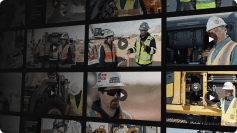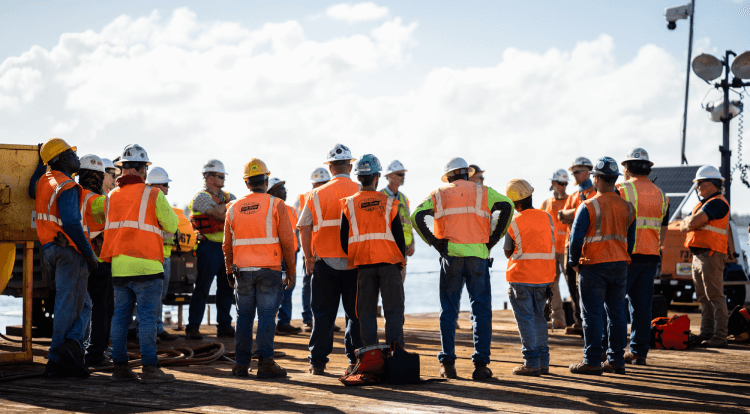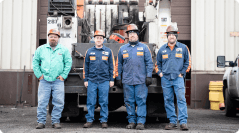What Industries Make Up the Dirt World?
Written by Megan Hamilton
March 1, 2023
We often talk about the Dirt World as one big industry, because it’s all essential to keep our society running. The Dirt World mines raw materials and builds many of the things we need to survive. In particular, it builds the things that go under, across, or through the earth’s surface.
But in fact, many sub-industries make up the whole Dirt World. Let’s explore these industries to see what they do. Who knows—maybe you’ll find one that sparks your interest in a Dirt World career!
Earthwork
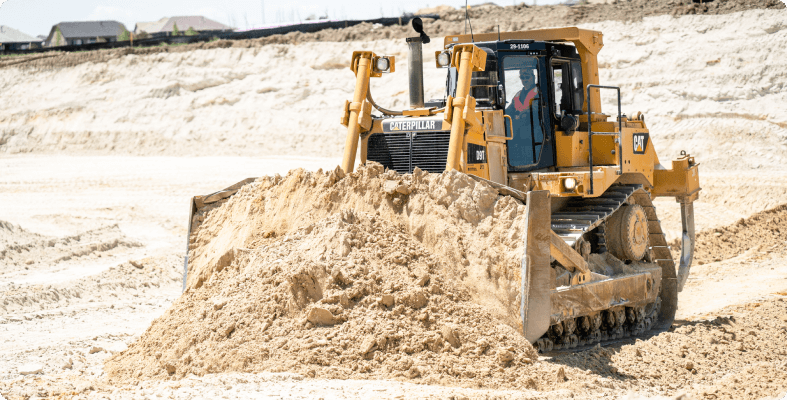
Earthwork includes all the digging and dirt-moving that happens before contractors can build something. Earthwork uses heavy equipment like excavators and bulldozers to do everything from clearing land to leveling foundations.
Any residential or commercial construction project requires earthwork. Here are some examples:
- Houses
- Apartments
- Condos
- Offices
- Stores
- Schools
- Hospitals
- Parks and playgrounds
Earthwork requires specific regional knowledge. For example, contractors like Bemas Construction in Colorado need to know how to deal with clay and sandy soils. Contractors in Florida work with sandy soils, too—but they’re far more likely to be wet.
Transportation

Transportation connects our society and powers our economy. The “heavy highway, road, and bridge” sector of the Dirt World helps build and maintain transportation infrastructure like:
- Driveways
- Parking lots and garages
- Roads and highways
- Interstates and exchanges
- Gas stations
- Fuel refineries and pipelines
- Airplane runways
- Train tracks
- Docks, bridges, and canals
Did you notice that some transportation work revolves around water? Water is another Dirt World industry (more on it in a minute). So oftentimes, you can find a career that overlaps multiple industries—no need to choose.
Transportation work also includes the earthwork, retaining walls, aggregate processing, asphalt, concrete, trenching, and paving that go into building these structures.
Utilities
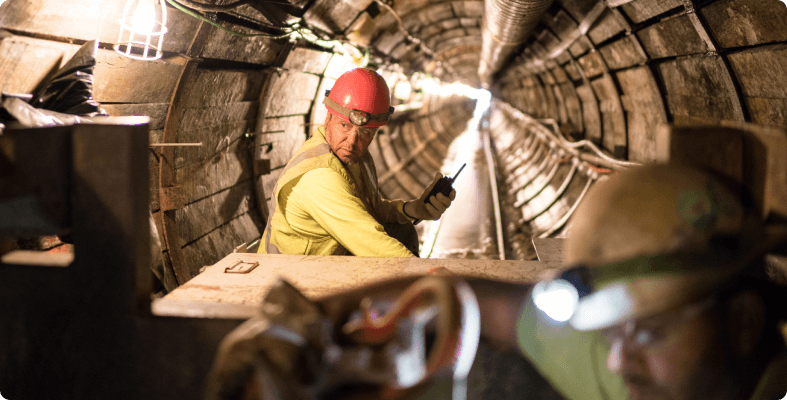
Utility means usefulness. Utilities are the useful services we rely on in our homes and businesses. Water and electricity are utilities we talked about earlier.
Other utilities include:
- Fiber optic cable
- Sewer service
- Natural gas or propane
- Internet
- Phone service
- Trash and recycling services
Basically, utilities let us heat and cool buildings, remove waste from them, or communicate with others from the comfort of where we’re sitting.
The Dirt World helps install underground utilities like cable, gas, water, and sewer lines. And it prepares building sites for aboveground utilities like cell phone towers.
Water
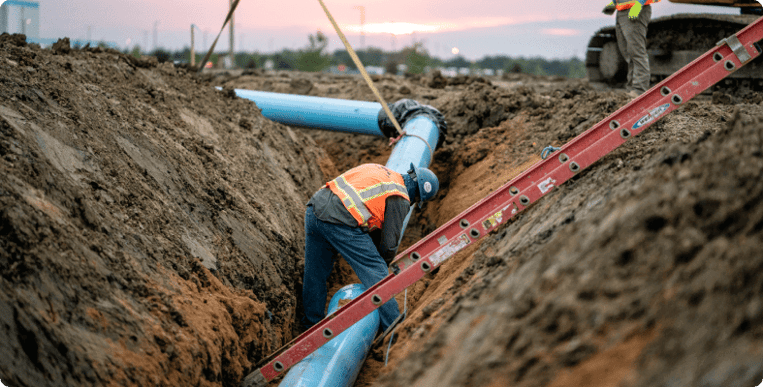
Many Americans take clean water for granted. But thousands of Dirt World workers deserve the credit for bringing us this vital resource. They dig trenches and lay pipes to supply water to our homes and cities.
The Dirt World also makes larger parts of our nation’s water infrastructure. They build:
- Dams
- Wells
- Pipelines
- Reservoirs
- Water storage tanks
- Water treatment facilities
- Sewers, storm drains, and culverts
Basically, they make anything that helps harness water’s power, clean water, or move it. They also repair our nation’s water infrastructure as it gets old and needs work.
Like earthworkers, water workers must be experts on local soil, water, and sometimes even weather conditions. For Charley Toppino & Sons, this requires a thorough knowledge of the Florida Keys’ water table.
Some companies, like J.W. Fowler and Midwest Mole, create underground tunnel systems that help move water, most of which lie beneath our feet without us even knowing. Companies like these often provide tunneling services for other Dirt World industries, too
Energy
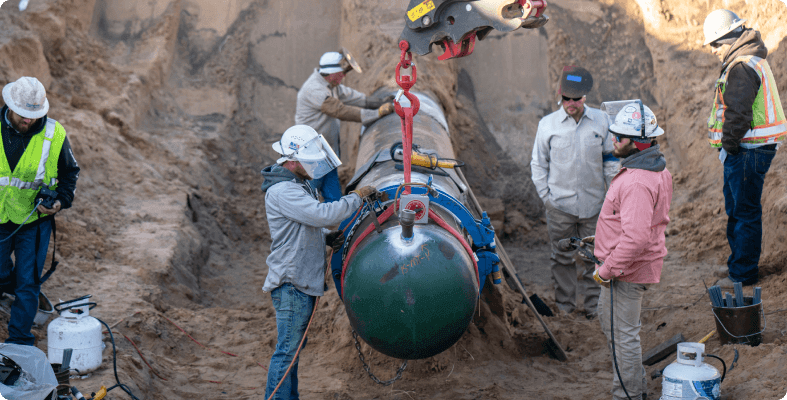
The Dirt World builds the pipelines and infrastructure to bring raw resources—like natural gas and water—to power plants.
It also builds the power plants themselves. That includes:
- Hydroelectric dams
- Wind farms
- Solar farms
- Nuclear power plants
- Coal-fired or gas-fired power plants
Dirt workers maintain this energy infrastructure, too. Contractors like Midwest Services Group repair pipelines across enormous stretches of the country and address issues that arise around them
Manufacturing and Industrial

The manufacturing and industrial sector builds large facilities where companies can make or store their products.
Some examples include:
- Amazon distribution centers
- Food processing plants
- Automotive factories
Basically, the Dirt World’s manufacturing and industrial sector ensures that other essential industries can do their jobs. It builds any structure those industries use to make, store, or distribute consumer goods.
It's all part of the teamwork it takes to keep our society running.
Mining
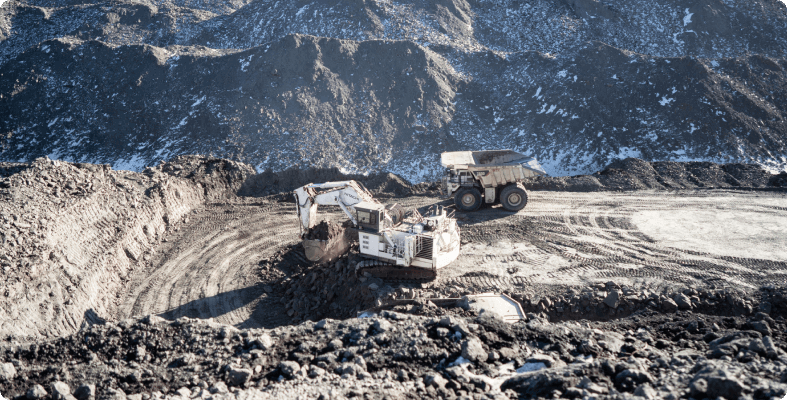
Mining involves moving large amounts of earth to reach resources like clay, coal, copper, iron ore, natural gas, rare minerals, rock, sand, tar, and more.
These materials make the metal, glass, and plastic household items we use every day—from cell phones to dinner plates.
Mining is often misunderstood, but it’s an essential and noble part of the Dirt World. It happens every day, all over the globe. To learn the truth about mining, watch our Chief Dirt Nerd Aaron Witt visit three NACCO coal mines.
How mining serves the Dirt World
Mining extracts the raw materials that all other Dirt World industries need to make tools, equipment, and building materials. Here are just a few examples:
- Transportation: Mining extracts rock and sand that paving companies turn into asphalt. They also mine fossil fuels and metals to make vehicles.
- Energy: Miners provide the raw materials energy workers need to make plastic, metal, and concrete parts of power plants. They also mine the copper for electrical wiring.
- Manufacturing: Miners extract metal, mineral, and liquid resources to make assembly lines, manufacturing equipment, and products—from refrigerators to rubber spatulas.
Working in Mining
Mining is highly regulated, and good mines are sticklers about keeping their people safe. Mining companies can be big corporations or small, family-owned businesses.
Many mining companies, including our friends at NACCO, have spent decades honing their mining processes. They also restore habitats and reclaim old mine sites—so they get to give back to local communities.
And if you work in mining, you’ll get to use some of the toughest, coolest machinery around—like the Big Iron in this potassium mine or the articulated haul truck.
Environmental restoration and preservation
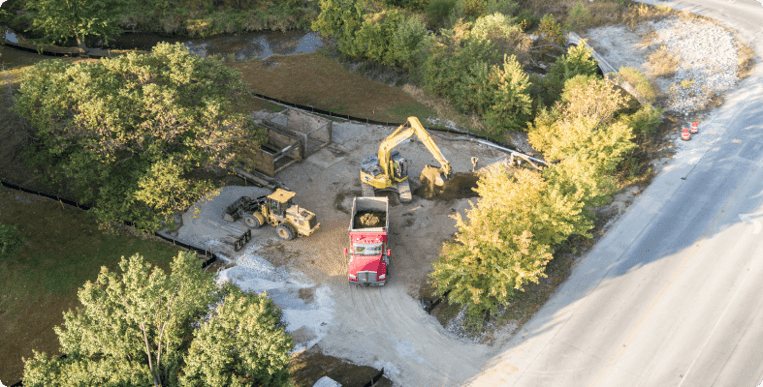
Wait, what? Yep! The Dirt World plays a key role in restoring and preserving environmental areas.
For example, you may drive past sunflower fields, cattle ranches, shopping centers, or golf courses that are all on top of old mine sites. That’s pretty cool!
Learn more about mining and mine reclamation.
Dirt workers also help preserve natural and historic areas so future generations can enjoy them. They ensure that construction projects don’t disturb plants and animals, and they do earthwork to shore up older structures and keep them safe.
So, Dirt World workers don’t just dig up the earth. They help protect it, too.
Sanitation
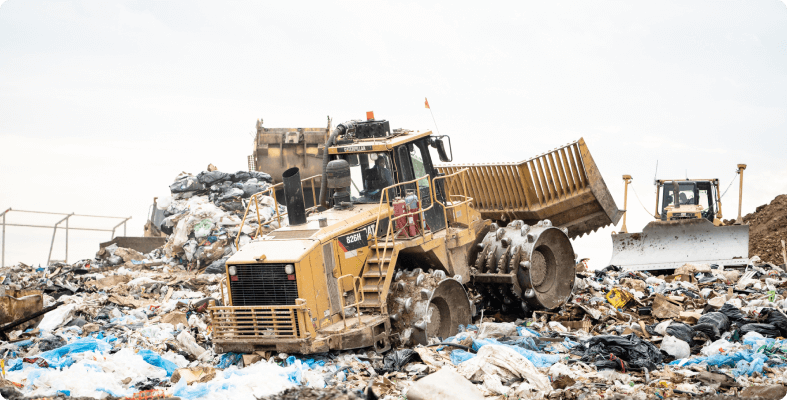
Americans generated 292.4 million tons of garbage in 2018.1 That means each person threw out 1,789 pounds of trash—that’s as much as the world’s largest grizzly bear weighs.2
While we can recycle some waste, most of it goes into landfills where Dirt World workers manage it.
They excavate the landfill and line it to keep waste from leaking into our water supplies. They fill in the waste and vent the methane gas it emits as it decomposes. Some landfills even send that gas to power plants for use as a renewable energy source.
Demolition
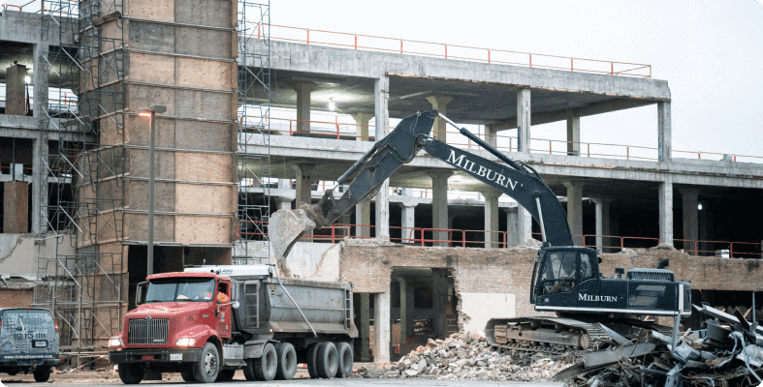
Sometimes, you have to get rid of the old before you can build the new. That's where demolition comes in.
Demolition is the process of safely tearing down and removing old or unsafe structures. Then, other companies can build something new or convert the land for natural or agricultural use.
Milburn Demolition is a premier demolition company that serves clients nationwide. Check out this video to see some of their projects at an airport and an old school, plus how they helped restore a historic church.
Engineering

Different types of engineers work in the Dirt World—like civil, industrial, environmental, mining, and geotechnical engineers. They serve all Dirt World industries, and each one specializes in a different aspect of construction or extraction.
But they all have one thing in common: they help make sure the things we build today will be here tomorrow and that those things are safe for us to use.
For example, geotechnical engineers test soil to see if it can support a structure. If it can’t, they’ll recommend how to fix it—or suggest not building there. Mining engineers make sure mines are built and operated safely. Environmental engineers make sure a project won’t harm plants, animals, or drinking water.
Markets the Dirt World Serves
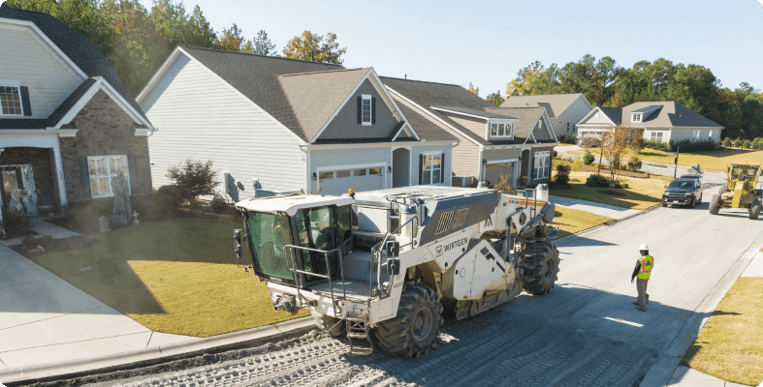
Now you know what the Dirt World does. When we talk about markets, we’re talking about who it does these things for.
Some markets the Dirt World serves include:
- Residential: privately owned homes, living spaces, and land
- Commercial: stores and businesses
- Industrial: warehouses, manufacturing plants, and large, privately-owned infrastructure
- Municipal: local governments, like cities and counties
- State: larger government projects, like paving a state-owned highway
- Federal: government projects at the national level
Takeaways
The Dirt World is one big industry that’s made up of many sub-industries, including:
- Earthwork
- Transportation
- Utilities
- Water
- Energy
- Manufacturing and industrial
- Mining
- Environmental restoration and preservation
- Sanitation
- Demolition
- Engineering
These Dirt World industries serve all markets, from private individuals to businesses to the government.


